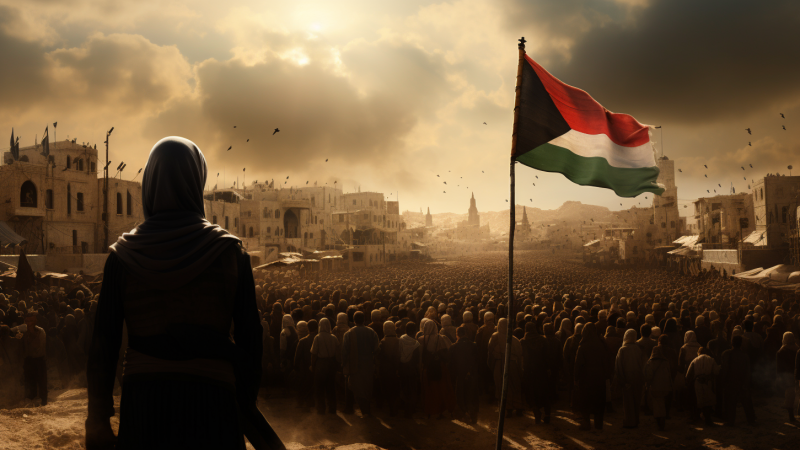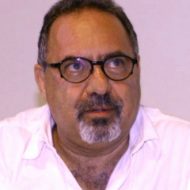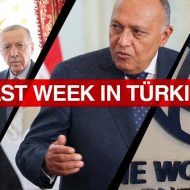Like every event that occurs in today’s communicated and interconnected world, the escalation of the Israel-Palestine conflict has repercussions at various levels. This is how one must understand and study it.
This is, firstly, of course a local conflict pitting one occupying country against another that has been forced to react to the usurpation of its territory by force. This level of analysis receives the greatest room in the written media and the greatest amount of time in the audiovisual media.
The large transnational communication companies only think of news as a commodity and, to that extent, as a business. Oblivious to any scruples, they aim to generate opinion in favor of those who are their allies, generally linked to large international capital. To that same extent, it is “reported” without regard to the truth, but thinking in favor of imperial interests, hiding the fact that they were the ones that generated the conflict. We already know that. This is how it is always and throughout the planet.
No one, except the United States – whose economy is subsidiary to war and conflict through the military-industrial complex – can be in favor of that. Only those who have been in war know that the worst instincts of human beings are unleashed: the need to survive leads to the need to kill, and that is unnatural. Human beings are not murderers by nature.
Nor does anyone agree with terrorism, some of us reject it out of conviction and principle. Likewise, no one can be against self-defense and the right to life, which is the most sacred of all rights: Without it, all others are insubstantial and have no meaning of existence.
In this way, in the current conflict in Palestine – as in Ukraine – it is transcendental to know when and how it began. In Ukraine, the war did not begin in February 2022 when Russia began its special military operation, but in February 2014 when the West – and in particular the United States – orchestrated, organized and financed a coup d’état to overthrow the constitutional government. Thus, the conditions were created for the emergence of Nazi-fascist organizations that unleashed terrorism against the minorities that inhabit that country.
Likewise, the conflict in Palestine did not begin on October 7, when the Palestinian Hamas launched a barrage of several thousand missiles against the territory occupied by the State of Israel, but in 1948 when -precisely- the occupation began and the peace agreements of the UN that were obligating the creation of two states on that territory were not fulfilled.
In both cases, after violating the pre-existing situation in 2014 and 1948 respectively, everything became possible in terms of devastation and death. War, which is a barbaric phenomenon, appeared with all its consequences of destruction and savagery.
We Venezuelans know this very well. From the very birth of our country in 1811 we knew the European barbarism that violated for three centuries the territory of what the native peoples call the Abya Yala. Very early in the war, in 1813 the Liberator Simón Bolívar was forced to issue the Decree of War to the Death. The “pacifists” of today, after reading that document, would not hesitate to say that Bolívar was a terrorist and would try to judge him for violating human rights, but that document made it possible to create the legal support to develop the war of independence that finally concluded with the defeat of the European usurpers and occupiers in 1824 after the Battle of Ayacucho.
It is worth saying that the war of independence in Venezuela reached levels of terror, barbarity, cruelty and ferocity that had no parallel in any other region of America. Here all the principles that modernly regulate humanitarian law were violated – from one side to the other.
Before Ayacucho, Bolívar and the Spanish general Pablo Morillo, top leader of the monarchical expeditionary forces in Venezuela, agreed to negotiate a treaty to regularize the war. This agreement signed in November 1820 in the town of Santa Ana, in the current state of Trujillo, is the first document referring to the international humanitarian law of war signed in Latin America. It begins by saying: “War will be waged as civilized peoples wage it.” Quite a contradiction, but it indicates the willingness of the parties to resolve aspects that deviated from strictly military execution and that ended up affecting third parties, in some cases, unrelated to the conflict.
This document establishes strict parameters regarding the treatment of the civilian population, the wounded, respect for the remains of soldiers killed in combat and the way of assisting captured enemy combatants, among others.
So if there is someone who knows how to fight and win, even fiercely if the enemy imposes it on us, who knows how to negotiate and respect the opponent and who knows how to live and love peace because we know the barbarity of war, then it is us, the Venezuelans. We have a heritage that the Liberator bequeathed us, and we are faithful to it.
Those modern pacifists, without a doubt, would have judged the Liberator; they would not have participated in or supported the war. Today we would suffer the misfortune of still being Spanish. Nobody wants war, but we must understand that the love for the country, the attachment to the land where we were born or where we grew up, is stronger than the strongest pain that war confrontation produces. Nobody wants the death of civilians, but if we make a parallel between the American war of independence, the Palestinian-Israeli conflict, and the war in Ukraine, we will find a common factor: the colonial and imperial interests of subjugation, domination and control to expand wealth regardless of the interests of the people.
The colonialists and imperialists do not care about the which instruments to use nor the fact that their imperial interests mean the extermination of millions of human beings. Spain cared little about the hundreds of millions of people murdered. The powers cared little about handing over territory to the Zionists so that they could settle there by force, annihilating millions of Palestinians. The United States and NATO care little that young Ukrainians lose their lives in a war that they cannot win and that only brings benefits to American companies that have increased their profits by selling weapons, oil and gas.
There is no good and bad terrorism. Let’s see what the United States has done by creating terrorist organizations such as Al Qaeda, ISIS and Boko Haram, among others, which it supports, arms and finances only because their actions coincide with its imperial interests.
It is good to follow the news, but as I said recently, it is more important to know the causes and origins of the events. Having that in mind, this leads us to know what purposes are hidden behind them and what interests are at stake.
The right to rebellion is enshrined in the constitutions of most countries in the world. It is as old as the existence of oppression of some over others. From Plato and Saint Thomas Aquinas to the Universal Declaration of Human Rights of 1948, this right has been accepted throughout history.
Therefore, it is about recognizing the legitimacy of a people that rebels. The problem of the instruments it uses is something else. But it cannot be that the United States that defines who is the terrorist and who is not, taking into account the history of this country: It was the United States, which exterminated its native peoples, which dropped two atomic bombs on Hiroshima and Nagasaki, which established and supported satrap and murderous governments of its people around the world, who allowed, knowing in advance, that his people were victims of a horrible terrorist attack on September 11, 2001, who, having all the resources, did nothing and little to prevent the pandemic from killing more of a million of its citizens. This is not the state to have a say in anything.
To be continued..









Leave a Reply